2 min read
Gospel-Centered from the Start
“Let us hold unswervingly to the hope we profess, for He Who promised is faithful…Jesus Christ is the same yesterday, today, and forever.” (Hebrews...
Every industry develops its own lingo. Shelters and recovery programs are no exception.
We talk about “old wounds” and “relapse” and “triggers.” Our discussions revolve around “underlying causes” and “heart” talk, advocating “total accountability” and “life transformation.” If you’re entering into the conversation for the first time, it can be a bit confusing, and if you didn’t grow up in church, the confusion grows exponentially as one set of jargon mixes with another.
“Above all else, guard your heart, for it is the wellspring of life.” (Proverbs 4:23)
To lay some groundwork, the Union Gospel Mission holds to the biblical definition of the heart as the center of the innermost being. Author and pastor John Piper puts it like this: “The heart is what you are, in the secrecy of your thought and feeling, when nobody knows but God...So the heart is utterly crucial to Jesus. What we are in the deep, private recesses of our lives is what he cares about most.”
“People look at the outward appearance, but the Lord looks at the heart.” (I Samuel 16:7)

As the center of our being, the heart has incredible value, and when it is damaged, the consequences are far-reaching.
For a couple years, UGM has been using recovery materials from a ministry called Aphesis, a Greek word meaning “to release from bondage or imprisonment.” We asked the director, Tim Rule, to speak at our staff conference a few summers ago. It was an amazing two days of looking at our behaviors and motivations and the false beliefs we held about ourselves, the world and God. We took time to study what was going on inside us and whether we were allowing the truth of Scripture to permeate our innermost selves: i.e., our hearts.
Earlier this year, Tim asked me to speak at one of his events. Aphesis’ key program is a discipleship process called “Untying the Knots of the Heart” – a curriculum with which we have had great success at the Center for Women and Children – so in preparation for my speech, I opened my computer and did a search on untying knots. Up pops an article by Owen Marcus called, “How to Untie a Knot.” The parallels between untying literal knots and untying figurative knots were remarkable, so I used Owen’s observations in my speech that night and in a devotion with UGM leaders afterward.
I thought the whole metaphor might be helpful to a larger audience in terms of understanding what we mean when we talk about heart wounds and why UGM spends so much time and energy on healing those wounds.
I took Owen’s observations and applied them to our personal journeys of life transformation, “untying the knots” in our own hearts.
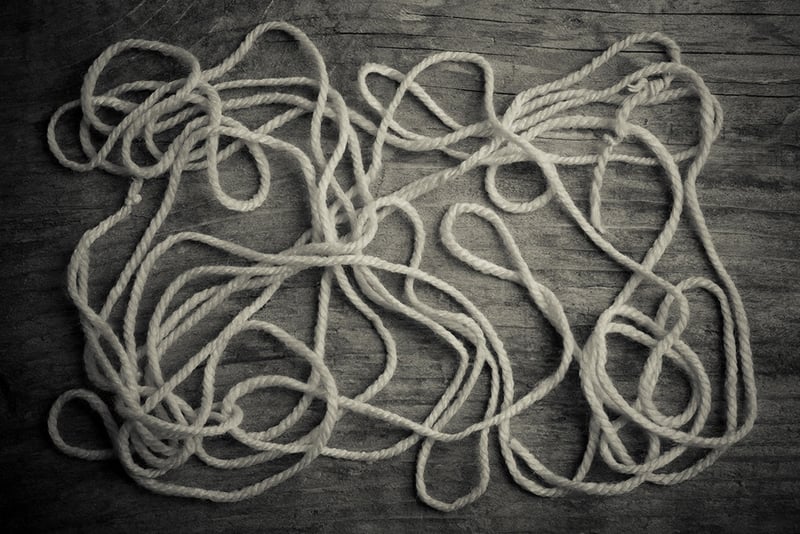
You cannot untie a knot while multitasking. It needs your undivided attention. If you’re also trying to re-adjust your waders or marveling at the clouds or still trying to catch fish, you’re not going to be able to untie knots in your fishing line.
In partnership with a supportive community, UGM provides the men and women in our recovery programs the opportunity to free themselves from distractions and focus on the knots, the trouble areas that have been tripping them up.
Generally, it takes their full concentration and effort to find the knots in the first place. What’s driving their addiction? How did they get to this place? Why do they get angry all the time, isolate from others, go back to their abusers, etc.?
While most of us can’t take that type of break from daily responsibilities, it’s worth noting that we all need to be intentional about our inner lives, asking God, like the Psalmist, “Search me, and know my heart; test me and know my anxious thoughts.”
A broken line means lost bait, lost hook, lost catch.
Left unattended, the knots in our lives can take us out. We hurt and we don’t know why we hurt. We want relief, but we’re not sure how to get it.
Satan, the one who is always working against God, would love nothing more than to take us out, and he’ll use whatever means he can, including the painful experiences of our pasts, to distract us from the truth – that God loves us, that he’s in control, that he’s working all things together for our good.
Blind spots. We all have them. We justify our wrongdoing. We rationalize. We normalize. We blame. Anything to avoid painful thoughts, feelings and memories. Unfortunately, the thing about blind spots is we don’t know they’re there.
Here’s a challenge: Ask someone to tell you what he/she thinks your blind spots are. Then, rather than dismiss the ideas or look the other away, get out the magnifying glass. Pray. Ask God to show you behaviors or attitudes he might want you to change.
No one can do the work for us. The way to growth is to press in and walk through the pain ourselves, but there’s nothing wrong with asking for help. Other people can point out the blind spots, pray, offer encouragement, listen.
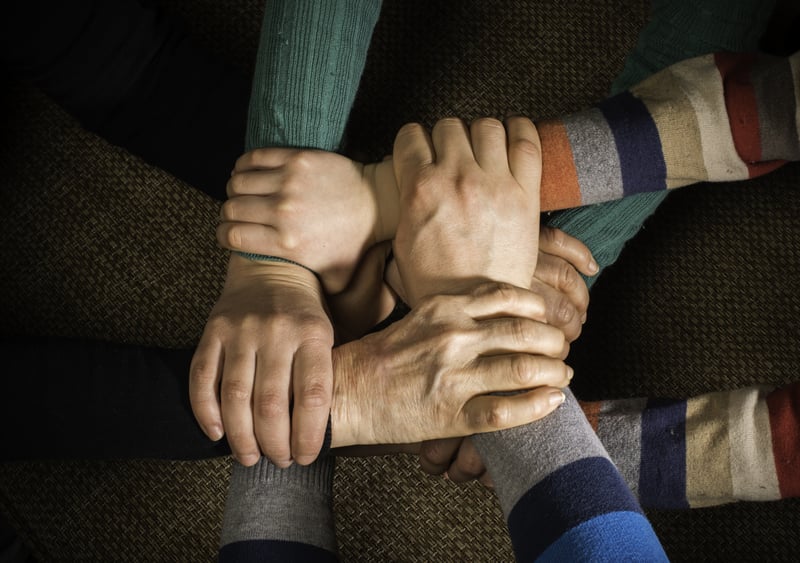
Scripture uses another metaphor: “A cord of three strands is not quickly broken” (Ecclesiastes 4:12). We need each other. Remember when Moses needed Aaron and Hur to hold his hands up – one on one side and one on the other? There is no shame in asking for help. God often uses other people to demonstrate his love, to counsel, to lead us to the truth.
Ignoring the problem won’t work. Just as a knot won’t work itself out of fishing line, a heart wound won’t heal by itself. Instead, it will fester.
You’ve probably heard the oft-quoted definition of insanity: doing the same thing over and over but expecting different results. Once we’re aware of the knot, we have to address it or it will only get worse.
We all need periods of rest and renewal. A balanced life requires self-care, time with friends and family, recreation, laughter, time with God.
We also need the fresh start that comes from confession and forgiveness. Our shelters are filled with people who, through the power of the Holy Spirit, have been given a fresh start, and we see the beauty of that. But it’s also important to recognize that we can begin each day with a clean slate because the mistakes of yesterday are forgiven.

Trauma leaves scars that can last a lifetime. For many of our residents, those scars led to their addiction in the first place. Rather than avoid the memory, UGM counselors help them follow it to the original wound where healing needs to occur.
UGM is all about giving people tools – tools to set boundaries, tools to identify their feelings and deal with them in constructive ways, tools to resolve conflict, tools to recognize triggers and avoid them.
Pain can be a tool when it brings to light what needs to change in our lives.
But the best tool is the Word of God. “Sharper than any doubled-edged sword, it penetrates even to dividing soul and spirit, joints and marrow; it judges the thoughts and attitude of the heart” (Hebrews 4:12). We need to read the Bible, memorize it, meditate on it, let it soak into our hearts and change us.
You can help others untie their heart knots by volunteering to work with the men and women in our shelters. The best part about this work is that it changes you too!

2 min read
“Let us hold unswervingly to the hope we profess, for He Who promised is faithful…Jesus Christ is the same yesterday, today, and forever.” (Hebrews...

9 min read
To celebrate 75 years of serving the Inland Northwest, we are spending the year remembering our history and the faithfulness that built us and...

2 min read
In 2026, Union Gospel Mission Inland Northwest is approaching our 75th Anniversary! This is a milestone that invites gratitude and reflection, and...
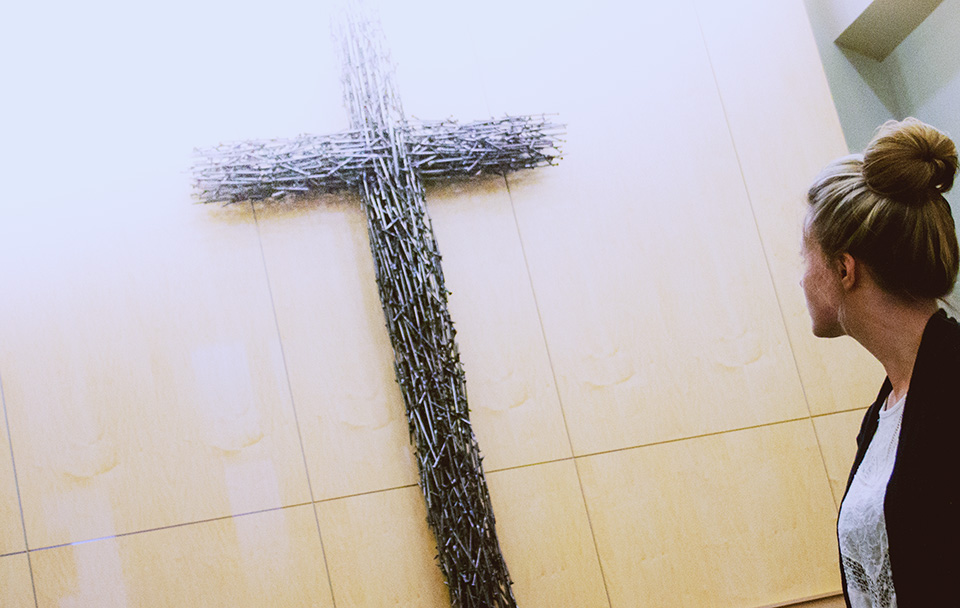
Written and performed by 2016 UGM LIFE Recovery alum Amanda Taylor.
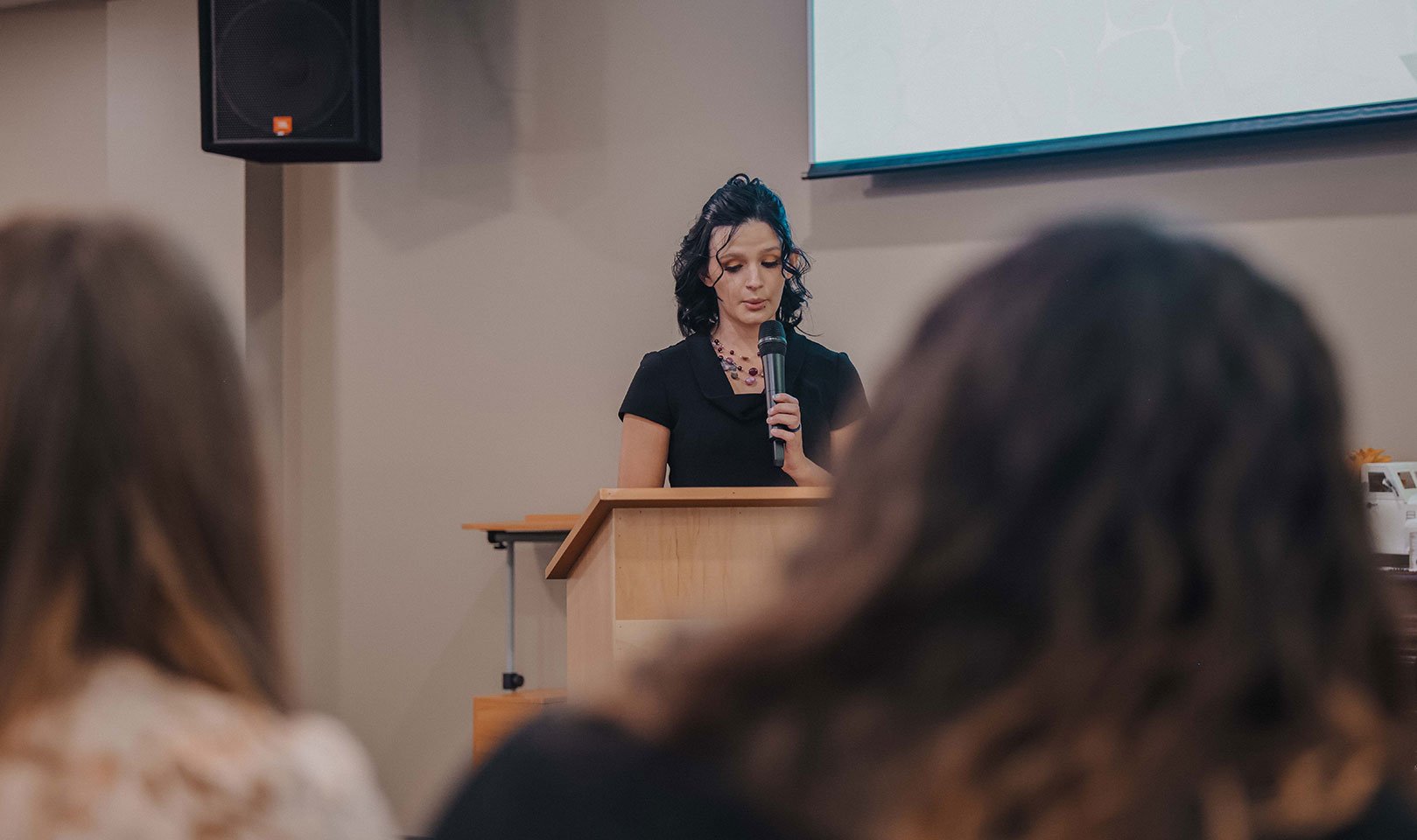
UGM program resident Jessika wrote a “breaking up with addiction letter” and shared at the fall LIFE Recovery Phase Promotion. Women receiving...
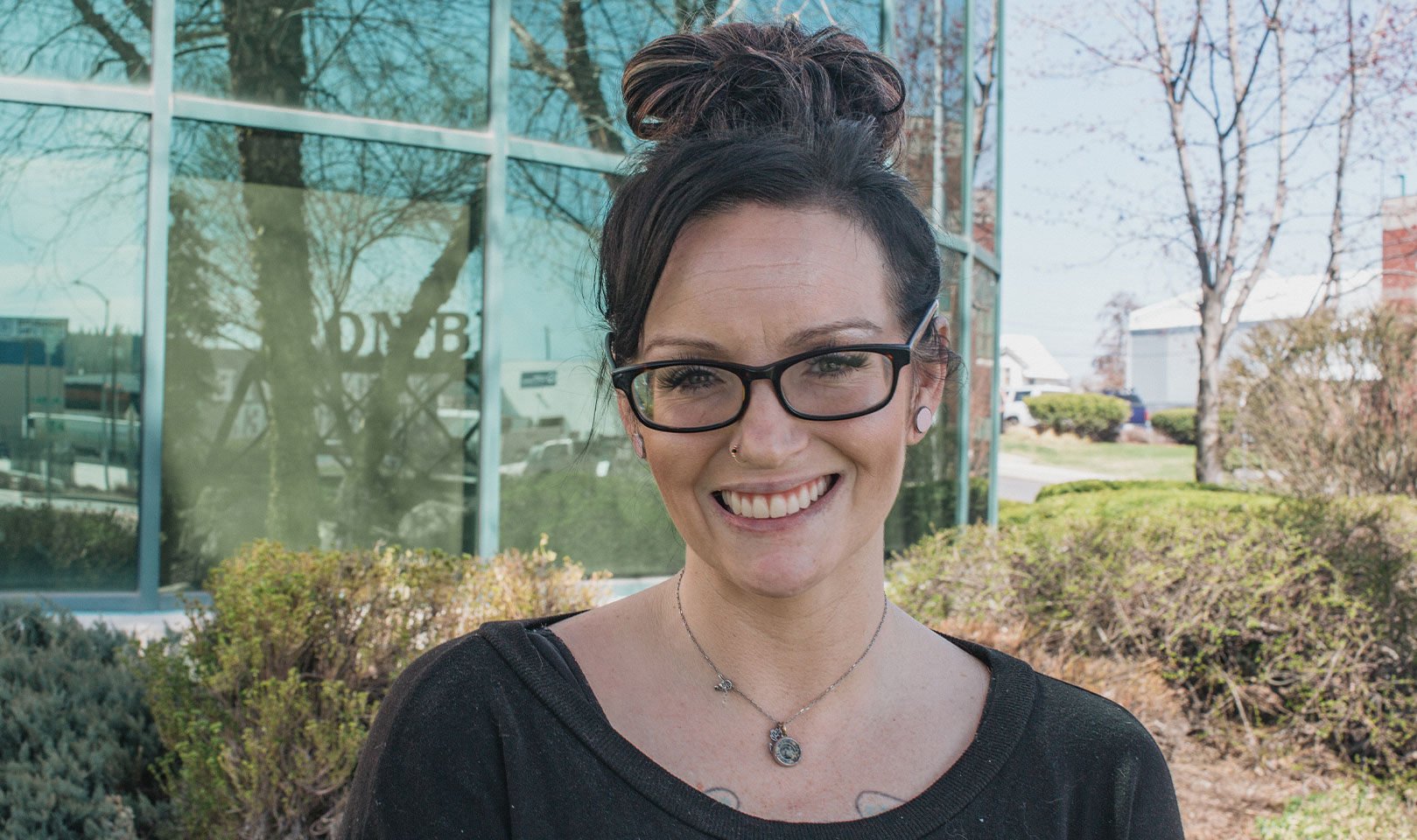
The UGM Life Recovery program prepares individuals to break cycles, create healthy relationships, and balance responsibilities. Rachel commenced in...